Doctors Turned My Sister Away — and 2 Years Later She Died of Cervical Cancer

My sister Sophie had her whole life ahead of her when, at the age of 25, she died of cervical cancer. She had recently graduated from Brighton University with a degree in sport and exercise science, and had a fulfilling career awaiting her. She was living with her long-term boyfriend - later fiancé - Dave, with whom she'd planned a life, marriage and children. She'd just returned from the trip of a lifetime to Bali with a friend, eager to see more of the world. But none of that future was to be for Sophie.
She first noticed the symptoms not long after she got back from Bali in Autumn 2009. Sophie had taken the pill back-to-back while she was away to avoid having to think about her period, but when she returned she noticed some abnormal bleeding along with unusual discharge and pain.
Not knowing what was wrong, Sophie went straight to the doctor, where she was offered a change of pill and an STI test at the GUM clinic. There was no physical examination, just a suggestion Sophie thought was unnecessary; she had been in a faithful relationship for almost 8 years at that point. If she hadn't had STIs detected in previous tests, why would she have one now?
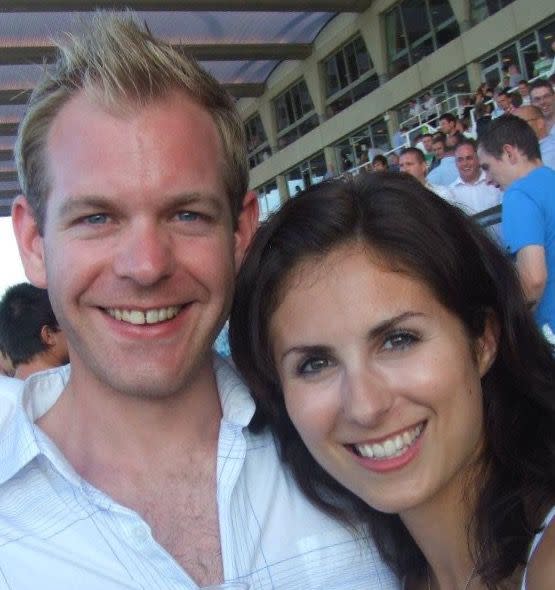
So she didn't go, but the symptoms continued. A few months later, in early 2010, Sophie returned to the GP; a different doctor this time. He didn't ask whether she'd attended an STI test or not – despite it being written in her notes – and again; no examination. Just like before, Sophie was offered a change of pill (which she tried, again) and was sent on her way.
After a little while, Sophie's symptoms worsened. Eager to find out what was causing this bleeding, as well as pain during and after sex, my sister returned to the doctor a third time. It's not actually clear what this GP - a locum doctor - said, but in Sophie's medical notes it looks as though he wrote that she was "doing better," which absolutely wasn't the case. Who goes back to their GP just to tell them they're "doing fine, thanks"?
Up until this point, nobody knew about Sophie's concerns except her partner, Dave. But one afternoon in the spring of 2010, Sophie had popped in to see Mom during her lunchtime, and she passed out on the sofa. Mom was worried, asking why she was so tired and didn't seem like herself. Sophie got upset and told her everything; she told Mom she felt she was being dismissed and that no one was listening to her. She knew her own body and she knew something was wrong.
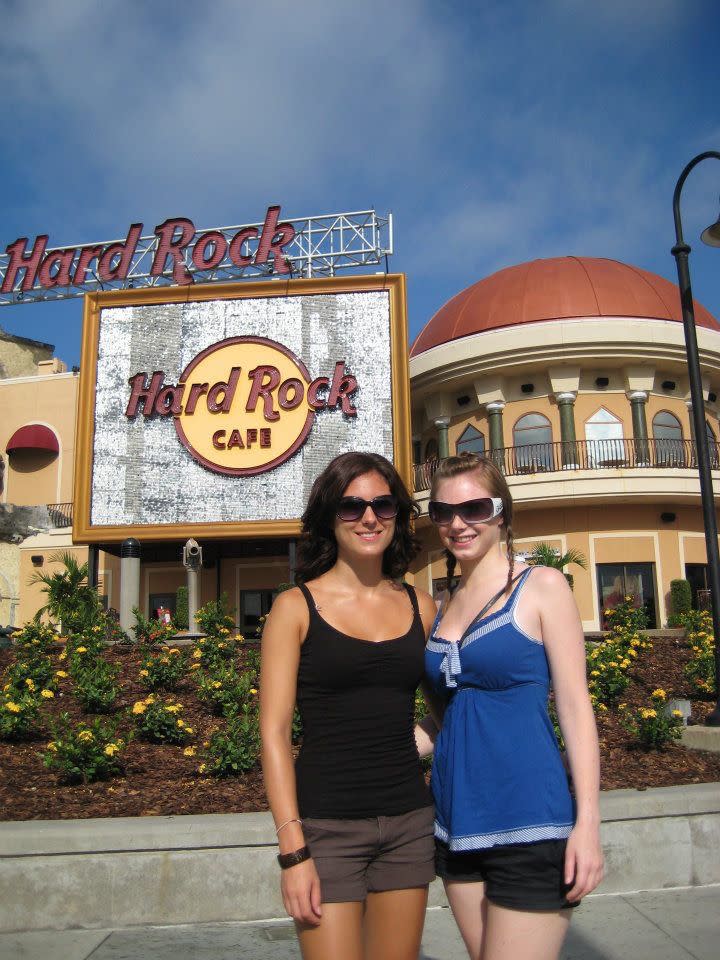
My parents acted quickly and used the medical contacts they had (my dad is a superintendent radiographer) to arrange a scan for Sophie. She went for an ultrasound first and that was when they spotted the mass. They saw it right away, it was so visible. A consultant then carried out an MRI, which confirmed what the ultrasound had seen.
Although doctors believed the mass looked cancerous, further investigation was needed before they actually discovered what it was. But when Sophie was referred to the gynecology department, she couldn't tolerate internal examination because it was just too painful at that stage. Instead, she underwent an examination under anesthetic, where they found a 5cm tumor covering her cervix. Sophie had cervical cancer.
The suggested treatment was drastic and life altering: doctors wanted her to have a radical hysterectomy, which would see the complete removal of her uterus along with her cervix. Sophie was so brave about it. She was dealt the devastating blow that she wouldn't be able to have children naturally, but because doctors had said there was a 95% success rate in defeating the cancer with this kind of treatment, she simply took the attitude: "I've got to do what I've got to do." She would worry about the repercussions of the surgery later.
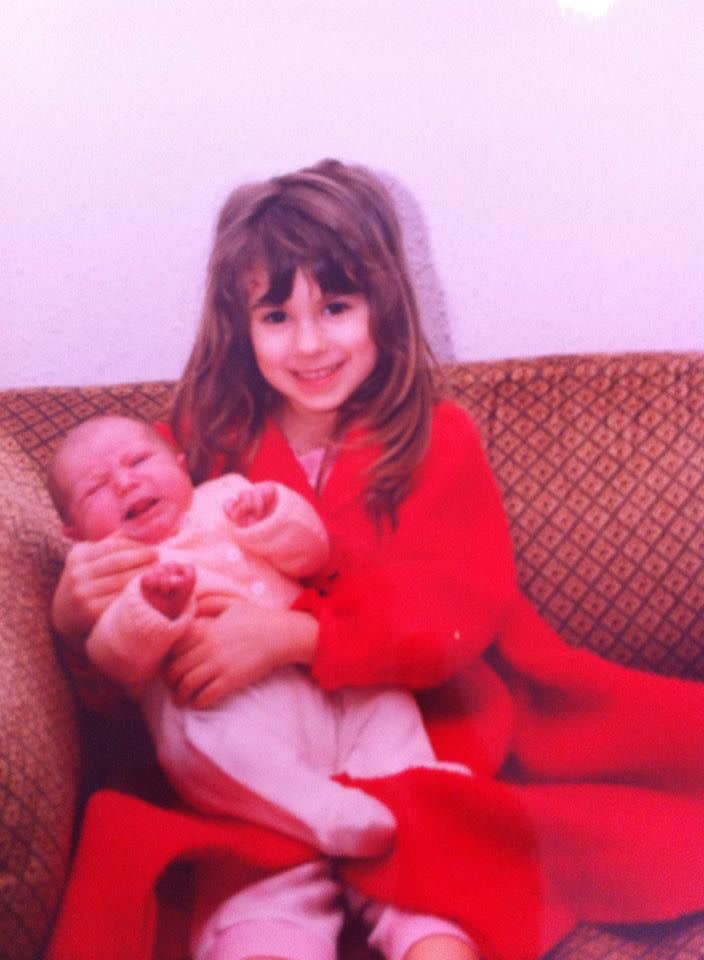
The surgery was successful and Sophie recovered well from it, but the news afterward was less positive. We were told her "margins weren't clear" which, in doctor speak, means they didn't know if the cancer might still remain. The edges around the tissue they removed weren't clear of cancer, which meant it could likely still have been embedded in my sister.
Sophie's surgery had been in July of 2010, and by the autumn her symptoms had come back again. The tumor had returned with a vengeance this time, so she needed chemo-radiotherapy in an attempt to minimize it. As always, Sophie dealt with it with a smile on her face, but God only knows how she was feeling inside.
I was at university at the time, but I came home every weekend to see her and we'd spend time doing girly things; we made it our thing to watch Sex and the City together and I'll always cherish those memories.
I didn't know it at the time, but when Sophie's treatment finished in early 2011 and it was unsuccessful - her tumor had started growing again - my family was told there was nothing more doctors could do for my sister. They would continue treatment with chemotherapy alone, but it would only be to extend life; not to cure the cancer. Sophie was devastated. She was 24 years old.
Dave was there for her through it all, though. He had to continue working to pay for their flat, although by this time Sophie had moved back in to the family home where my parents could look after her full-time. Whenever he wasn't working he was there with her, supporting her and keeping her company, and in May 2011, on Sophie's 25th birthday, he proposed to her. He made her so happy.
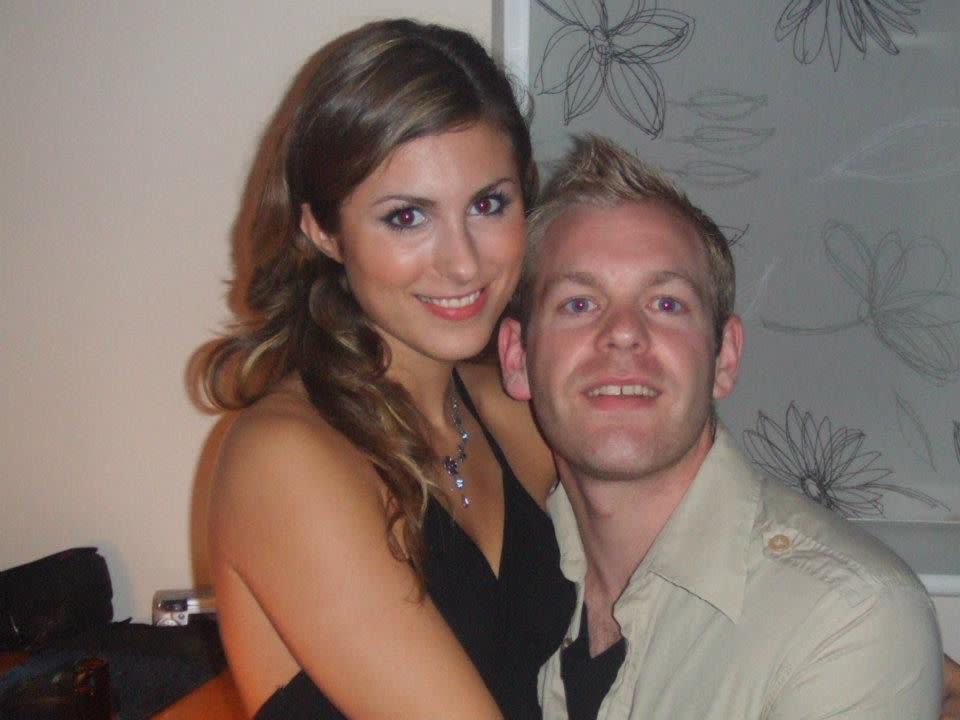
The chemo was hard for Sophie, but she soldiered on through and managed, even through the darkness of it all, to have some good days.
Anyone who knew Sophie knew her hair was her "thing," so it was particularly painful when it started to fall out. But there was a charity called My New Hair who invited her up to London with Mum where they removed the final wispy bits that were yet to go, before pampering the pair of them and giving Sophie her own real-hair wig, which was styled and colored exactly how she wanted. The wig completely transformed her; it made everything feel doable because you'd look at it and you wouldn't even believe it was a wig. It completely changed something that was horrific into something that, actually, was manageable.
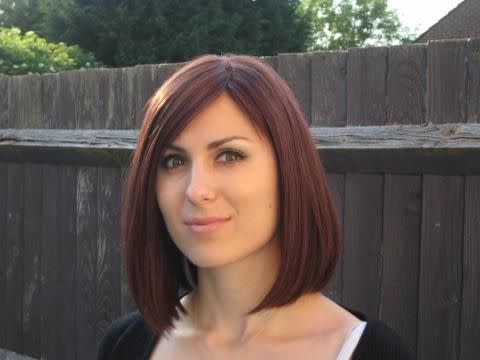
I honestly didn't know Sophie's cancer was terminal until the day she died. It sounds odd, but I don't think it ever actually crossed my mind that she was going to die. I was so in denial about how seriously ill she was, the day Sophie died I had even arranged to go and see the new Twilight film with one of my friends. I literally had no idea.
Sophie died on November 19, 2011, just less than a year and a half after her diagnosis. She passed away in her room at home surrounded by all of us; my mom, dad, brother and Dave. My grandfather lives next door and my aunt had come over from New Zealand, and they came in to say goodbye afterward.
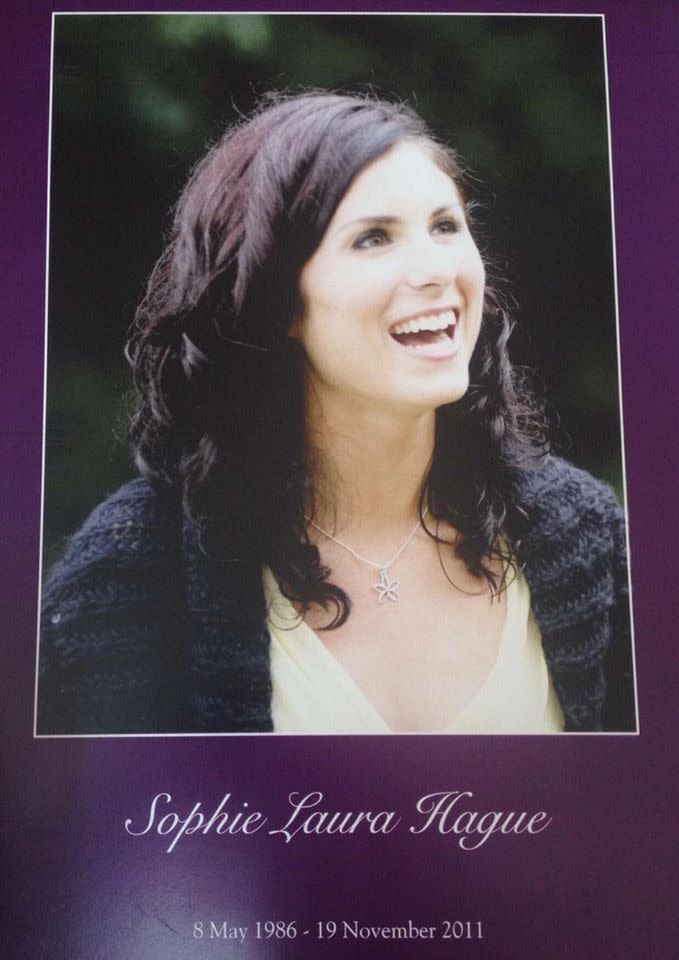
Her death left me devastated. It's a pain you should never have to watch your parents experience, and I feel robbed of the life we should have lived together. As we grew older, we had become friends and not just sisters, and it's the times I see my friends with their sisters - like recently at my friend's wedding, when I watched her getting ready with hers - that the impact of the loss hits home again. It's raw and it hurts just like it did on that day five years ago. I know that's something I'm going to have to cope with throughout my life.
It's a different kind of loss for Dave. He had his life sorted; they were settled, they'd talked about marriage, they'd talked about kids, and it was all ripped away from him. But he's always stayed a part of the family, and I'm pleased he's found a new relationship in recent years and is managing to get on with his life.
The sad thing is, I can't help but feel that all this could have been preventable. If Sophie had just been examined at that first appointment, they'd probably have spotted her tumor and it might not have grown so big. We're always told with cancer that the earlier you catch it, the better your chances are. Everyone knows that. So how can I not believe that delaying her diagnosis by six months didn't make a difference?
As a midwife now, the main thing I say to women when they're pregnant or post-natal is "you know your body." We're always taught that as a woman; we know when something's wrong. And that's exactly what Sophie did, but somehow it wasn't enough to save her.
('You Might Also Like',)

